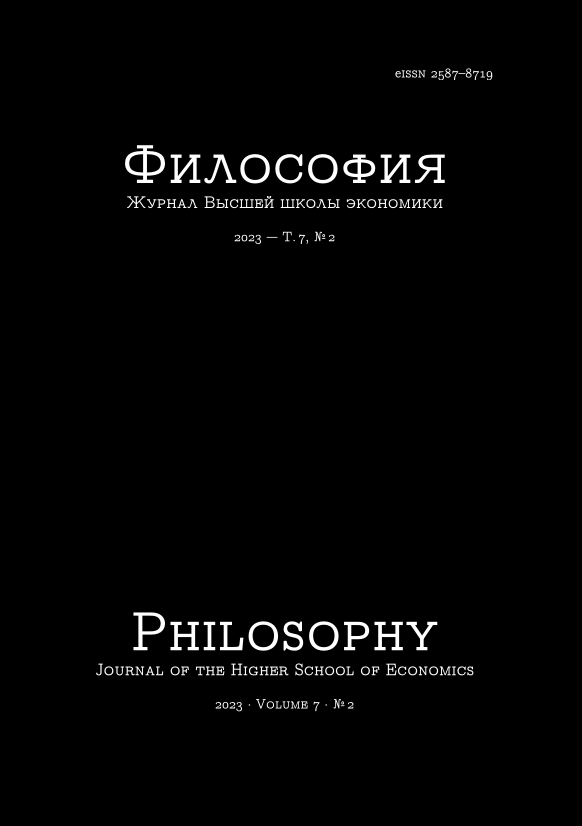Семантика переходов и детерминизм во временной логике
Аннотация
В рамках данной статьи рассматриваются предпосылки становления семантики переходов в контексте проблемы детерминизма. Влияние представлений о детерминизме прослеживается в различных областях философии, в том числе и во временной логике. Рассмотрение ряда аспектов детерминизма позволяет подробно описать причины формирования в логике определенных подходов к оценке овремененных высказываний. Так, в работе рассматривается анализ Артуром Прайором детерминистических аргументов, лежащих в основе классических вариантов семантики оккамовского и Пирсового типов и принципа «жди и смотри». Дальнейшее изучение данных семантик по ряду логико-философских причин расходится на два самостоятельных и конкурирующих между собой направления: логику пространства-времени (BST) и гипотезу Thin Red Line. Эти системы представляют собой варианты оценки овремененных высказываний через использование пар <момент, история>, которые ввиду некоторых своих недостатков на текущий момент не завершены. Последнее побудило некоторых исследователей начать поиск альтернативных вариантов оценки. В частности, примечательны работы Джона Макфарлейна, где особое внимание уделяется определению условий адекватной репрезентации идеи открытого будущего. В его понимании ключевым условием является совмещение двух философских интуиций о детерминизме, которое можно реализовать за счет релятивизации оценки высказываний через контекст утверждения. В дальнейшем на эти работы обратил внимание Томас Мюллер, который, занимаясь вопросом отображения локальных аспектов модальной упорядоченности (в том числе и с философской точки зрения), выдвинул идею семантики переходов. Ее развитие сегодня отражается в работах Антье Румберг, где предлагается вариант семантики с наличием оператора стабильности. Получившийся вариант семантики позволяет разрешить сразу несколько основных вопросов касательно детерминизма. В частности, наличие оператора стабильности позволяет показать специфический характер проявления высказываний о случайных событиях. В свою очередь, оценка высказываний позволяет точно и непротиворечиво реализовать предложенный Прайором принцип «жди и смотри». Но, на наш взгляд, такой вариант семантики имеет ряд проблем с описанными ранее представлениями о природе будущего.
Скачивания
Copyright (c) 2023 Философия. Журнал Высшей школы экономики

Это произведение доступно по лицензии Creative Commons «Attribution-NonCommercial» («Атрибуция — Некоммерческое использование») 4.0 Всемирная.






